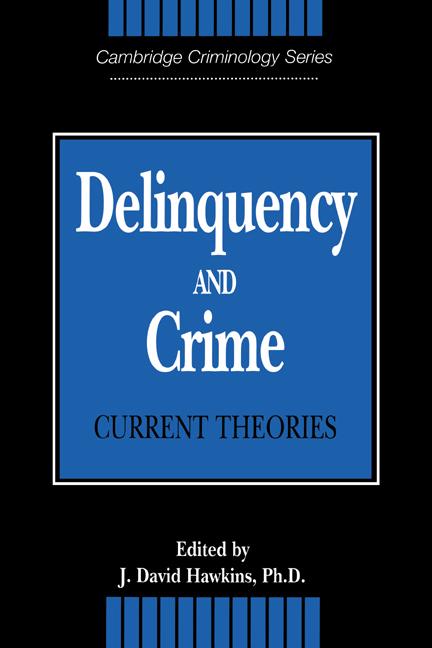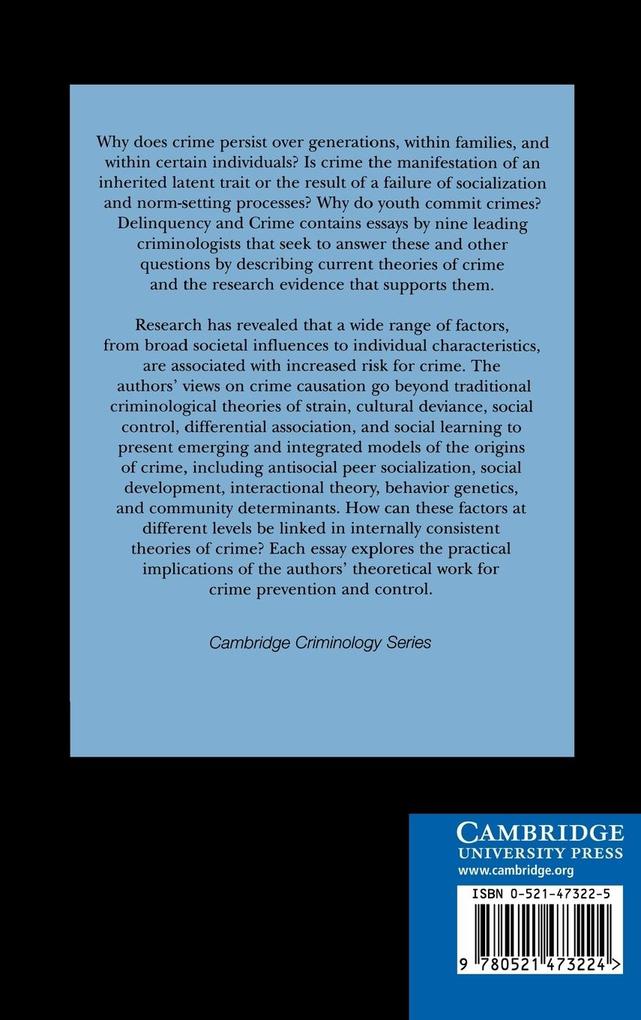
Zustellung: Mi, 11.06. - Sa, 14.06.
Versand in 1-2 Wochen
VersandkostenfreiBestellen & in Filiale abholen:
This book contains essays by nine leading criminologists that seek to answer questions by describing current theories of crime and the research evidence that supports them. These essays seek to link factors at different levels in internally consistent theories of crime. Each essay explores the practical implications of the authors' theoretical work for crime prevention and control.
Inhaltsverzeichnis
Introduction J. David Hawkins; 1. Developmental continuity, change, and pathways in male juvenile problem behaviors and delinquency Rolf Loeber; 2. Delinquent friends and delinquent behavior: temporal and developmental patterns Delbert S. Elliott and Scott Menard; 3. The explanation and prevention of youthful offending David P. Farrington; 4. The social development model: a theory of antisocial behavior Richard F. Catalano and J. David Hawkins; 5. Empirical support for interactional theory: a review of the literature Terence P. Thornberry; 6. The use of contextual analysis in models of criminal behavior Robert J. Bursik Jr.; 7. An adaptive strategy theory of crime and delinquency David C. Rowe.
Produktdetails
Erscheinungsdatum
08. April 2004
Sprache
englisch
Seitenanzahl
352
Herausgegeben von
J. David Hawkins, Alfred Blumstein, David P. Farrington
Verlag/Hersteller
Produktart
gebunden
Gewicht
722 g
Größe (L/B/H)
235/157/25 mm
ISBN
9780521473224
Entdecken Sie mehr
Bewertungen
0 Bewertungen
Es wurden noch keine Bewertungen abgegeben. Schreiben Sie die erste Bewertung zu "Delinquency and Crime" und helfen Sie damit anderen bei der Kaufentscheidung.











